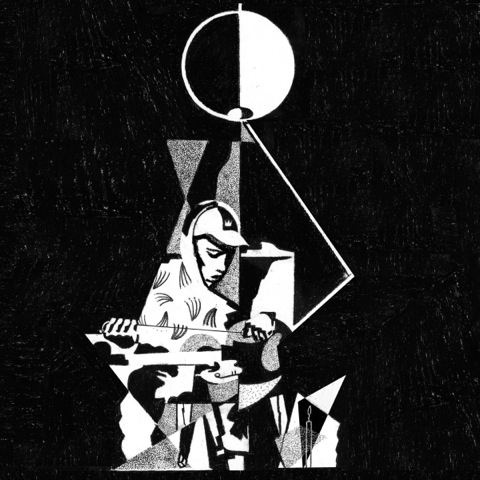Hidden behind a smoky wall of xx-nabbed aesthetics and an almost unlistenably irritating voice, King Krule doesn’t really know why he’s doing what he’s doing, except perhaps for the steez of it all. There’s a distinct lack of focus, with every one of his debut’s 14 tracks playing somewhat like an unfinished draft. As a producer it has to be said that Krule’s got a gift with these minimal beats and clean reverbed guitars, especially for a 19-year-old, but his talents are seemingly wasted on his own songs. That’s not to mention the sneaking suspicion that the sound of the record could all be down to co-producer Rodaidh McDonald, whose credits include The xx, Adele and How to Dress Well.
Sparser tracks like ‘Ocean Bed’ or ‘Baby Blue’ reveal something of the songwriting going on at the centre of all of this, and the reliance on major seventh chords and hamfisted storytelling gets very old, very quickly. ‘Ocean Bed’ in particular typifies King Krule’s sound, which is clearly supposed to sound stylishly rambling and quietly learned, but instead comes across as underdone and wishy washy. Both thematically and lyrically, King Krule remains uncertain as to quite what it is that he’s saying. ‘Neptune Estate’ asks "is there still life to live in hell?", whereas opening gambit ‘Easy Easy’ moronically reframes the banal, foolishly peddling everyday reality as poetic insight: "’Ow now I should’ve kept my receipts / ’cause the sandwich I bought / Yeah it’s been off for a week / And Tesco’s stealing my money".
There are plenty of nicely recorded aural treats dotted across 6 Feet Beneath The Moon, but they’re swimming in a sea of dull mediocrity. ‘A Lizard State’ starts off as a pretty harmless retro trip through the sort of jazz and surf elements currently being reassessed by the likes of Nick Waterhouse and The Allah-Las, but quickly descends into moronic sub-rapping about "fat bitches" (Krule’s words, not mine).
‘Out Getting Ribs’ is arguably the finest moment of the record, capturing uncannily gorgeous picked guitar tones in discussion with a tale inside the mind of a moody, heartbroken London youth. His voice remains a demonic presence, though, and it’s at its most pronounced here. It’s not just the jarring juxtaposition of the record’s atmospheric beauty with his ugly drawl (which might, after all, be deliberate), but also the contrast of ‘songwriter’s honesty’ with Krule’s image-obsession and self-absorption – of which we’re constantly reminded, thanks to the sheer artifice of that fucking gobstopper-numbed pronunciation. So potentially stirring moments, like the mid-song crescendo of ‘Has This Hit?’, totter like failing meringue.
And that’s what this guy sounds like on this record. Clearly King Krule’s youth and voice are meant to be his selling points, but they are in fact his biggest failings, resulting in a full length debut dogged by incomplete songs and wasted opportunities. He’s meant to be some sort of white urban wunderkind, but from the evidence, King Krule’s little more than Jake Bugg with beats – and even that little shit doesn’t seem quite so contrived.


